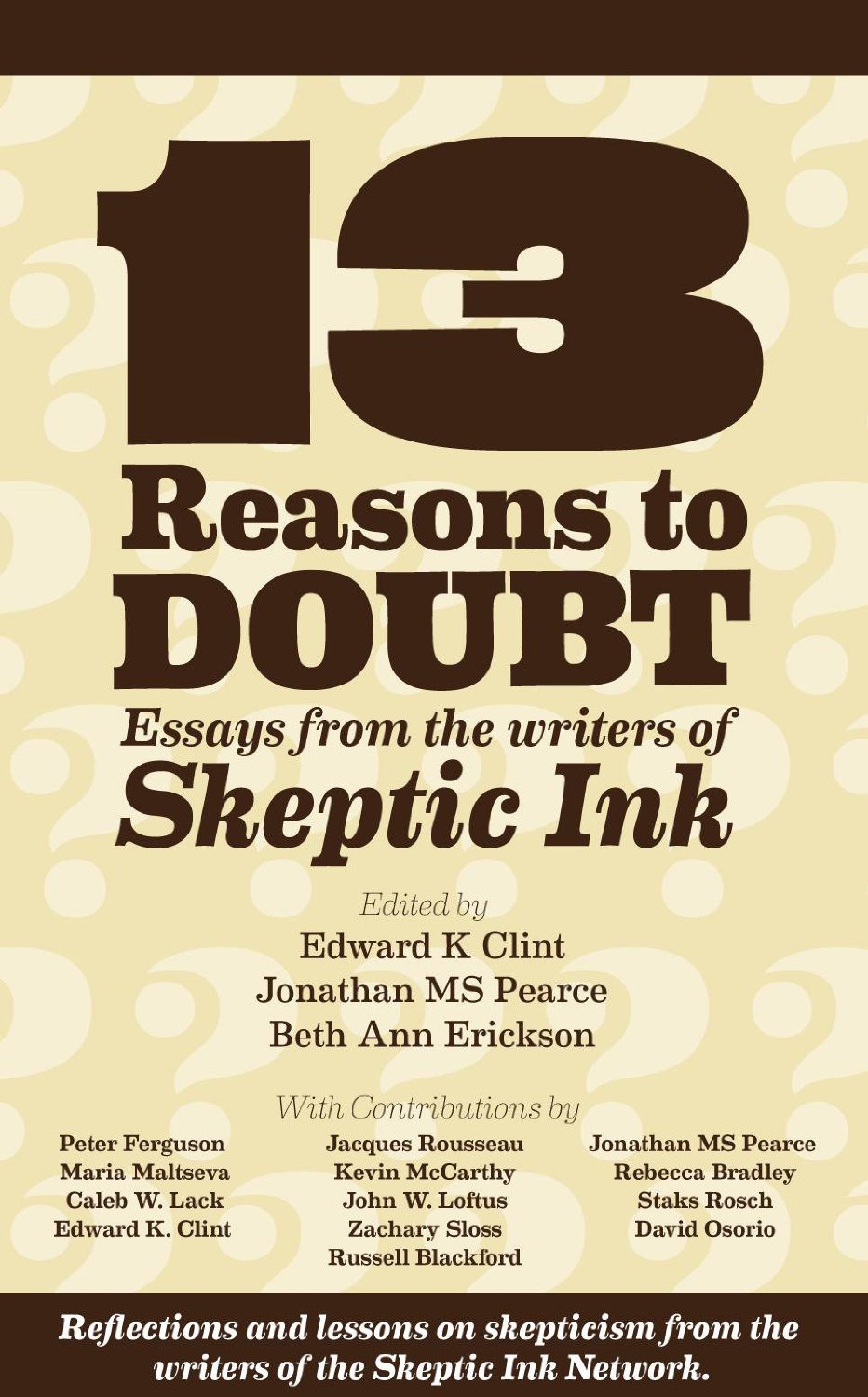 The writers here on the Skeptic Ink Network have just published our first collective book! Titled 13 Reasons to Doubt, it collects original essays from a number of SINners on the broad topic of scientific skepticism.
The writers here on the Skeptic Ink Network have just published our first collective book! Titled 13 Reasons to Doubt, it collects original essays from a number of SINners on the broad topic of scientific skepticism.
My contribution is titled “Why You Can’t Trust Your Brain” and is all about the natural cognitive biases we have and the problems that causes us when examining evidence of any kind. Here’s an exclusive excerpt to tempt you into purchasing it….
Two of the largest factors influencing why you should doubt yourself frequently and thoroughly are cognitive biases and mental heuristics. Since Kahneman and Tversky’s (1972) landmark article on how we, as humans, make non-rational decisions, the research on these factors has grown immensely. Cognitive biases are predictable patterns of judgmental deviation that occur in specific situations, which can cause inaccurate interpretation or perception of information. They impact our ability to make accurate, logical, evidence-based decisions on a consistent basis. Recognizing cognitive biases helps us to realize that our intuitive understanding of the world is often (but not always) distorted in some way. Once you understand that you cannot always trust your own judgment, and therefore need to apply doubt to yourself, you are on your way to beginning to overcome some of them. Luckily for us, these are “predictably irrational” (Ariely, 2008) problems, and so, by becoming aware of them on a conscious level, we are able to combat their influence.
Slightly different, heuristics are mental shortcuts or rules of thumb that significantly decrease the mental effort required to solve problems or make decisions (Kahneman, Slovic, & Tversky, 1982). Unfortunately, this will often lead to an oversimplification of reality that can cause us to make systematic errors that can become cognitive biases.
Although there is not a “standard list” of cognitive biases and heuristics (and in fact there are quite literally hundreds that have been identified), the ones described below are some of the most well-researched and common biases/heuristics we encounter as humans.
- Confirmation bias
- Belief perseverance
- Hindsight bias
- Representativeness heuristic
- Availability heuristic
- Anchoring and adjustment heuristics
I really do think this is a very solid book. The topics are very wide ranging (as befits the diversity of the authors) and covers topics outside of the “typical” skeptical ones (e.g., what some people deride as “Bigfoot skepticism”). Instead, you have philosophers, archaeologists, psychologists, anthropologists and more discussing topics from why skepticism is important to cognitive biases to science denialism and more. My personal favorite chapters are those by Russell Blackford and Jacques Rousseau, who both happen to be philosophers and skeptics. So, grab a copy and see for yourself what you think!
